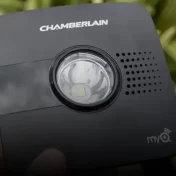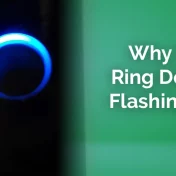In today’s tech-driven world, devices like Amazon’s Alexa have become household names, offering convenience and smart functionalities.
But with this convenience comes the question of privacy. Can you use Alexa to spy on someone? It’s a concern many users have, and it’s essential to understand both the capabilities and limitations of these devices.
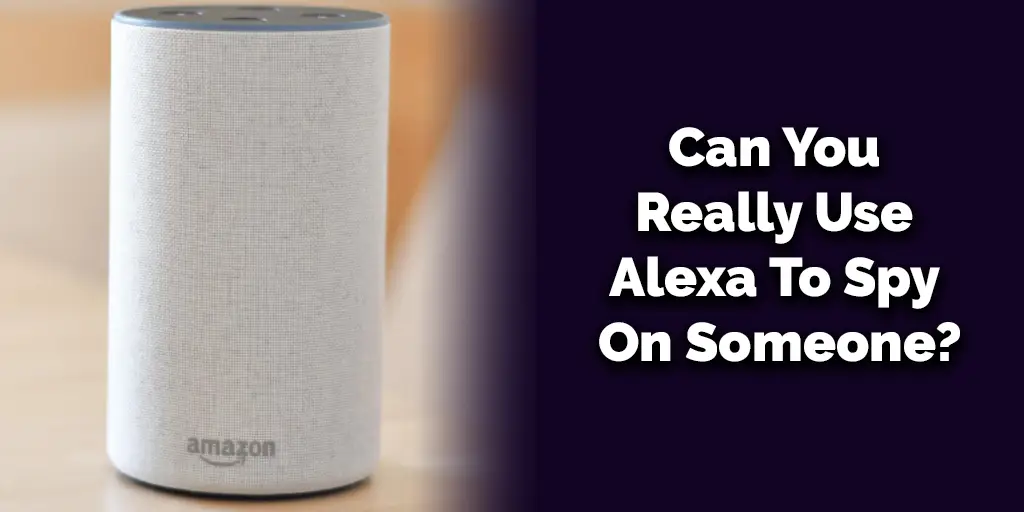
This comprehensive guide will delve into the depths of what Alexa can (and cannot) do, providing insights, lists, and case studies to paint a clear picture.
With the rise of smart home devices, it’s more crucial than ever to stay informed about potential security risks and how to mitigate them.
By the end of this guide, you’ll have a clear understanding of Alexa’s spying capabilities and how to safeguard your privacy.
Can You Spy On Someone With Alexa?
The short answer to this burning question is: it’s complicated. At its core, Alexa is designed as a voice assistant, not a surveillance tool.
However, like all smart devices, it comes with inherent vulnerabilities that could potentially be exploited.
Primary Functions of Alexa:
- Voice Recognition: Alexa primarily operates by recognizing the user’s voice to perform specific tasks, such as playing music or setting alarms.
- Connectivity: Alexa devices connect to the internet, allowing them to fetch information, control other smart devices, and receive updates.
- Recording: For Alexa to understand and respond, it must first “listen” to the command. This means the device is always in a passive listening mode, waiting for the wake word (usually “Alexa”).
Concerns and Misconceptions:
- Continuous Recording: A common misconception is that Alexa is always recording conversations. In reality, it’s in a passive listening state and only starts recording upon hearing the wake word.
- Data Storage: Alexa does store voice recordings, but these are primarily used to improve voice recognition and provide better responses. Users have the option to review and delete these recordings.
- Third-party Access: There’s a fear that third parties could access Alexa’s recordings. While Amazon assures users of data privacy, there have been instances of data mishandling or leaks in the tech industry at large.
Alexa and Accidental Recordings
In 2018, a family in Portland reported that their Alexa device recorded a private conversation and sent it to a random contact.
Amazon responded, explaining it as an unlikely sequence of events where Alexa mistakenly heard a series of commands.
This incident underscores the importance of understanding device settings and being cautious with connected tech.
How Can Alexa Be Used To Spy On Someone?
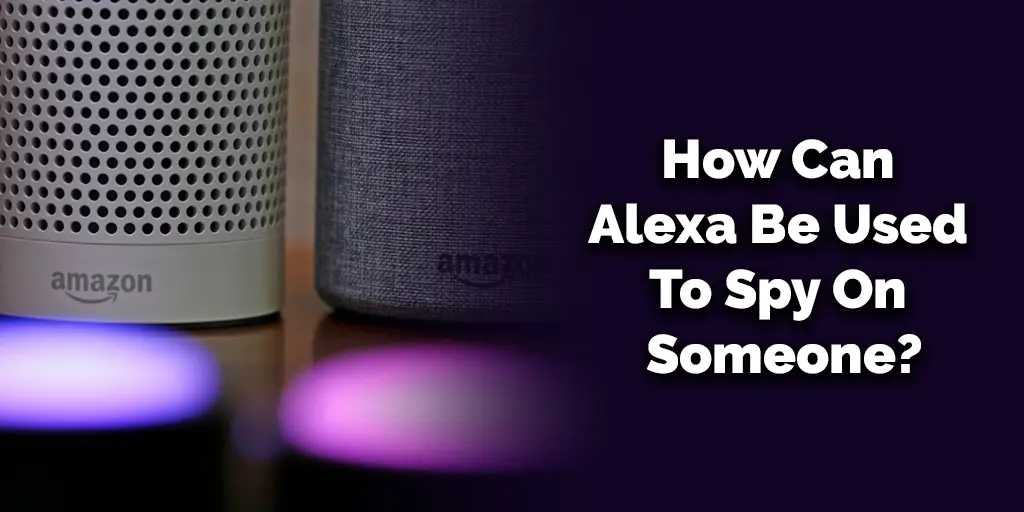
While Alexa isn’t inherently designed for espionage, its capabilities can be misused in certain scenarios. Understanding these potential misuse cases is the first step towards safeguarding privacy.
Drop-In Feature:
One of the primary features that raise eyebrows is the “Drop-In” function. When enabled, it allows instant connections between Alexa devices, turning them into intercoms.
This feature can be useful, for example, when checking on an elderly relative. However, if misconfigured:
- Unintended Access: Someone might “drop-in” unintentionally, leading to eavesdropping.
- Selective Listening: A user can choose which devices they want to drop in on, potentially leading to unauthorized surveillance.
Misconfigured Privacy Settings:
Like many devices, default settings might not always prioritize privacy.
- Recording History: By default, Alexa saves voice recordings. Someone with access to the account can review these.
- Purchase Settings: Without a PIN, there’s potential for unauthorized purchases or access to purchasing history.
Third-party Skills:
Alexa’s capabilities can be extended with “skills,” which are like apps. Some skills request access to personal data or device functions.
- Data Harvesting: A malicious skill might harvest data or eavesdrop.
- Hidden Functionalities: Some skills might have hidden or unclear functionalities that can be exploited.
Potential Misuses and Mitigations
| Potential Misuse | Mitigation Strategy |
|---|---|
| Unintended Drop-In | Disable Drop-In or limit it to trusted contacts |
| Access to Recording History | Regularly review and delete voice recordings |
| Malicious Third-party Skills | Only install skills from trusted developers |
A survey in 2020 found that 40% of smart device users were unaware of the privacy settings of their devices, highlighting the need for better user education.
Problems With Spying Using Alexa
Using Alexa as a spying tool is not only ethically questionable but also comes with a slew of technical and practical challenges.
Limitations of Alexa’s Listening Capabilities:
- Wake Word Dependency: Alexa devices are designed to start recording only after hearing the wake word. Without it, the device remains in a passive listening mode.
- Short Recording Durations: Once activated, Alexa listens for a command and stops recording shortly after fulfilling it. This is hardly effective for long-term eavesdropping.
- Background Noises: In a noisy environment, Alexa might not even capture clear audio. Devices can get triggered by ambient sounds, leading to incomplete or incoherent recordings.
Data Privacy and Encryption:
- End-to-End Encryption: Voice recordings sent to Amazon’s servers are encrypted. Intercepting these without the decryption key is challenging.
- User Notification: When certain features like Drop-In are used, Alexa devices give visual or audio cues, making covert spying difficult.
Legal Implications:
Spying on someone without their consent is illegal in many jurisdictions. Using a device like Alexa for such purposes can lead to:
- Invasion of Privacy Charges: Eavesdropping can be considered an invasion of privacy, leading to legal penalties.
- Evidence Inadmissibility: Even if one manages to obtain incriminating recordings, they might not be admissible in court due to the illegal methods employed.
Challenges of Using Alexa for Spying
| Challenge | Description |
|---|---|
| Wake Word Reliance | Alexa waits for a specific word to start recording. |
| Limited Recording Time | Recordings are brief and command-oriented. |
| Legal Consequences | Unauthorized surveillance can lead to legal action. |
Are There Better Ways To Spy On Someone Than Using Alexa?
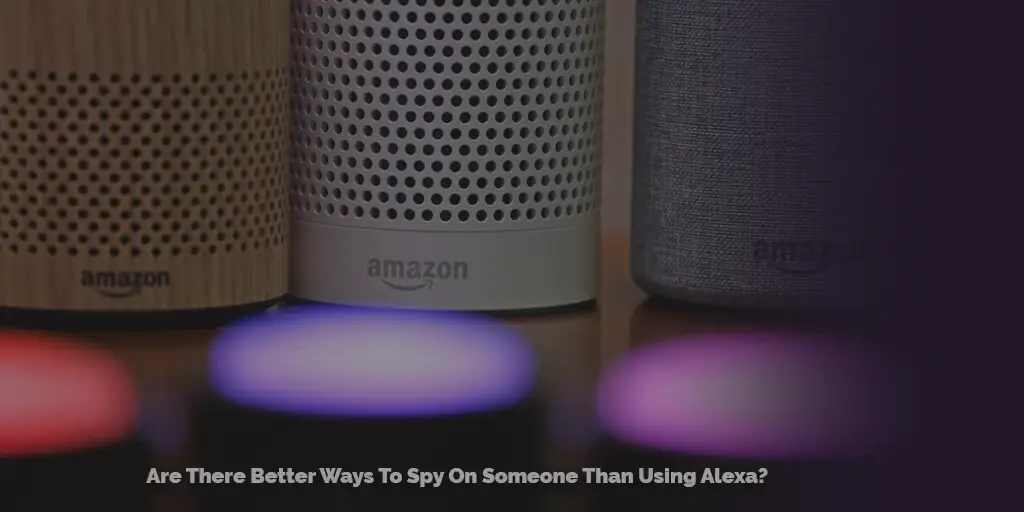
While the very idea of spying on someone is ethically and legally questionable, it’s worth noting that Alexa isn’t the most efficient tool for espionage. There are other methods and devices specifically designed for surveillance, though their use without consent is typically illegal.
Traditional Surveillance Equipment:
- Hidden Cameras: These can be discreetly placed in various locations and offer visual surveillance.
- Audio Bugs: Small devices that can record or transmit audio over long durations.
- GPS Trackers: Can be attached to vehicles or personal items to track movement.
Digital Surveillance:
- Spy Software: These are applications that can be covertly installed on smartphones or computers. They can record keystrokes, capture screenshots, and more.
- Remote Access Trojans (RATs): Malicious software that provides backdoor access to a device, allowing remote control and data theft.
Social Engineering:
Often, the most effective way to gather information isn’t through gadgets but through manipulation and deceit.
- Phishing: Tricks users into providing sensitive information by posing as a trustworthy entity.
- Pretexting: Creating a fabricated scenario to obtain information from someone.
Surveillance Methods vs. Alexa’s Capabilities
| Surveillance Method | Capability | Alexa’s Equivalent |
|---|---|---|
| Hidden Cameras | Visual recording | None |
| Audio Bugs | Continuous audio recording | Limited by wake word and recording duration |
| Spy Software | Capture digital activity | None |
A study found that over 70% of cyber espionage incidents involved some form of social engineering, highlighting the human element’s vulnerability.
Is It Possible To Hack Alexa To Listen In On Conversations?
The concept of hacking Alexa has been a topic of concern ever since smart devices made their way into our homes. The idea of an external entity taking control of such devices is, without doubt, alarming.
Potential Vulnerabilities:
- Outdated Firmware: Like all software, Alexa’s firmware can have vulnerabilities. If not updated regularly, it might be susceptible to known exploits.
- Third-party Skills: As mentioned before, adding skills increases the attack surface. Malicious skills can introduce vulnerabilities or act as Trojans.
- Weak Account Security: If an Amazon account linked to Alexa is compromised, it provides potential access to Alexa’s settings and data.
Reported Incidents & Exploits:
While Alexa has robust security mechanisms, researchers have, over the years, demonstrated potential exploits.
- In 2018, researchers showcased a method where a malicious skill could keep Alexa listening longer than intended.
- Another demonstration involved making Alexa silently stream audio to an external server.
It’s worth noting that these demonstrations were in controlled environments, and Amazon often patches vulnerabilities quickly.
Amazon’s Stance on Security:
Amazon consistently emphasizes the security of its devices. They employ:
- End-to-End Encryption: Ensuring data in transit is secure.
- Regular Security Updates: Patching known vulnerabilities and improving security mechanisms.
- Transparency: Providing users with access to their voice recordings and allowing them to delete them.
Hacking Concerns & Mitigation
| Hacking Concern | Mitigation By Amazon |
|---|---|
| Extended Listening Exploit | Regular firmware updates and skill vetting |
| Account Compromise | Two-factor authentication and security alerts |
| Data Interception | End-to-end encryption of voice recordings |
How Can You Stop Someone From Spying On You With Alexa?
Ensuring privacy in the age of smart devices is crucial. While Alexa provides numerous conveniences, it’s essential to be proactive in safeguarding your privacy.
Here’s a comprehensive guide on how to prevent potential spying via Alexa.
Review and Adjust Privacy Settings:
- Disable Drop-In: If you’re not using the Drop-In feature, it’s best to disable it. If you do use it, ensure only trusted contacts have access.
- Voice Recording Settings: Regularly review and delete voice recordings. Consider disabling the saving of voice recordings, although this might affect Alexa’s response accuracy.
- Purchase PIN: Set up a PIN for purchases to prevent unauthorized buying.
Secure Your Amazon Account:
- Two-Factor Authentication: This adds an additional layer of security, ensuring that even if someone knows your password, they can’t access your account without a second verification step.
- Monitor Account Activity: Regularly check for unfamiliar devices or activities on your account.
Be Cautious With Third-party Skills:
- Skill Reviews: Before adding a new skill, check reviews and ratings. Look for potential red flags.
- Limit Skill Permissions: Only provide necessary permissions to skills. If a weather skill is asking for access to your contacts, it’s a sign something’s amiss.
Physical Measures:
- Mute Button: When not using Alexa, consider hitting the mute button, especially during private conversations.
- Device Placement: Place Alexa devices away from private areas like bedrooms or bathrooms.
Privacy Measures and Their Importance
| Privacy Measure | Importance |
|---|---|
| Regularly Deleting Recordings | Prevents prolonged storage of personal data |
| Two-Factor Authentication | Adds a second layer of account security |
| Using the Mute Button | Ensures Alexa isn’t listening during private times |
A survey found that over 30% of smart device users have never checked or adjusted their device’s privacy settings.
Read Also: What Is Alexa Skills Charge?
Can Alexa’s Recordings Be Used As Evidence In Court?
The legal implications of using recordings from smart devices, including Alexa, in courtrooms have been a topic of much debate.
While these devices capture snippets of our daily lives, the question arises: Are these recordings admissible in court?
Legal Precedents:
While laws vary by jurisdiction, some general trends have been observed:
- Consent: In many places, for a recording to be admissible, at least one party involved in the conversation must have given consent. If Alexa accidentally records a conversation where none of the participants knew or consented, it might not be admissible.
- Relevance: The recording must be directly relevant to the case. Courts typically will not admit evidence that doesn’t have clear relevance to the matter at hand.
Case Studies:
Arkansas Murder Case (2017): In a landmark case, recordings from an Amazon Echo became a focal point. Prosecutors believed that the device might have captured audio of the moment of a murder. Amazon initially resisted the subpoena, citing First Amendment rights. However, they later released the data after the defendant consented.
Privacy Concerns vs. Legal Utility:
- Data Integrity: For digital evidence to be admissible, its integrity must be proven. This means showing that the data hasn’t been tampered with since its creation.
- Chain of Custody: There must be a clear and documented chain of custody for the evidence, from the device to the courtroom.
- Potential Precedents: As more cases involve digital evidence, the legal system will likely adapt, setting precedents for future cases.
Considerations for Alexa Recordings in Court
| Consideration | Description |
|---|---|
| Consent of Parties | Did participants in the recording give consent? |
| Relevance to the Case | Does the recording offer critical information? |
| Data Integrity and Custody | Can the data’s authenticity and chain of custody be verified? |
Security Issues With Alexa And Echo Devices
As with all connected devices, Alexa and Echo devices are not immune to potential security concerns. Understanding these risks is crucial for informed and safe use.
Device Vulnerabilities:
- Firmware Flaws: Occasionally, vulnerabilities in the device’s software can provide an entry point for malicious actors. These are typically patched in updates, so keeping the device updated is crucial.
- Hardware Exploits: While rarer, there have been instances where attackers exploit the physical components of a device.
Network Vulnerabilities:
- Weak Wi-Fi Security: If your home Wi-Fi isn’t secure, it can serve as a gateway for attackers to access all connected devices, including Alexa.
- Man-in-the-Middle Attacks: In such attacks, the hacker intercepts communication between two parties, potentially eavesdropping or altering the communication.
Data Privacy Concerns:
- Data Storage: Amazon stores voice recordings to improve the device’s accuracy. However, this data storage, if not managed, could pose privacy risks.
- Data Sharing: Concerns have been raised about data sharing with third parties, either for marketing or other purposes.
Common Security Concerns and Their Mitigation
| Security Concern | Mitigation Strategy |
|---|---|
| Firmware Vulnerabilities | Regularly update the device’s software |
| Weak Wi-Fi Security | Use strong, unique passwords and enable WPA3 encryption |
| Data Storage Concerns | Regularly review and delete stored voice recordings |
In a survey, over 50% of smart home device owners expressed concerns about potential eavesdropping by their devices.
Read Also: Understanding Alexa’s Light Indications and Resolving Common Issues
Conclusion
In the era of smart homes and interconnected devices, the intersection of convenience and security has never been more pronounced.
Alexa, as one of the pioneers in this domain, offers unparalleled convenience, but with it come concerns about privacy and security.
Can you use Alexa to spy on someone? As this comprehensive guide has demonstrated, while there are potential vulnerabilities and misuse cases, Alexa is not inherently designed for espionage.
Its primary purpose is to make our lives more comfortable and interconnected. However, as with all technology, understanding its capabilities, limitations, and potential pitfalls is essential.
For users, the onus is twofold: staying informed and being proactive. Regularly reviewing privacy settings, being cautious with third-party skills, and understanding the device’s workings can go a long way in ensuring a secure experience.
For manufacturers like Amazon, the responsibility is clear: continuously enhancing security, being transparent about data practices, and educating users about potential risks.
In the end, the dialogue around Alexa and privacy is a testament to the broader conversation about technology’s role in our lives. As we embrace the future, being informed, vigilant, and proactive will be our best defense.

